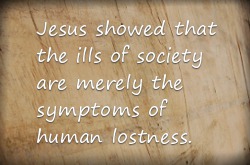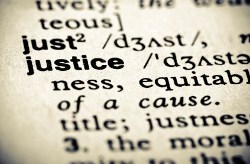Crime and the Nanny State
Body
“Great Society programs … subtly but powerfully undermine the family and the close-knit communities that support them.” Jonathan Witt at The American Spectator
As iron sharpens iron,
one person sharpens another. (Proverbs 27:17)
“Great Society programs … subtly but powerfully undermine the family and the close-knit communities that support them.” Jonathan Witt at The American Spectator
“It
Karl Marx and Friedrich Engels provide a helpful case study in the inherent limitations of government. Their landmark publication, The Communist Manifesto (hereafter, TCM), was first printed in 1848, and offered to some the hope they had been desperately seeking. Before asserting the solution, though, the TCM delineated with specificity what its authors believed to be the root problem. All of societal history is ongoing class struggle, with oppressor and oppressed standing against one another. This has taken place throughout four epochs of world history, all representing the struggle between oppressor and oppressed: (1) primitive and communal, (2) slave, (3) feudal, and (4) capitalist. TCM made the case for how a fifth era, a socialist and communist epoch, could right the wrongs of societal history. At the time of TCM’s writing, the world advanced deep into the fourth (capitalist) epoch, an era in which the ills dominating the previous ages were coming to a climax. It was the right time, thought Marx and Engels, for the working class of the world (the proletariat, the oppressed) to unite and cast of the shackles of the ruling class (the bourgeoisie, the oppressors). The goal was the “formation of the proletariat into a class, overthrow of the bourgeois supremacy, conquest of political power by the proletariat.”1
 Read part 1.
Read part 1.
In an earlier article (Considering the Words of Jesus for Social Justice and other Applications), I asserted that Jesus’ conversations during His earthly ministry fit into four general categories: (1) dialogues—usually intended to challenge particular people to repentance (right thinking about who God was and how one could be justified by Him); (2) pre-rejection public discourses about the kingdom—usually intended for broad audiences with a view to promulgating and clarifying the details of the kingdom so that the nation would understand clearly what was at stake; (3) post-rejection public discourse about the kingdom—usually in parable form, in fulfillment of prophecy, and for the purpose of hiding the truth from those who had already rejected; and (4) preparation of the disciples—often including private instruction so that those He had chosen would be prepared for the task of founding and leading the forthcoming church (assembly).
With these contextual keys in view, let’s examine some passages often invoked to advocate for social justice. The goal here is (1) to discover what Jesus was actually advocating, and (2) whether or not government mandated social justice was on His agenda.
Blessed are you who are poor, for yours is the kingdom of God (cf. Luke 6:20 and Matt. 5:3 and John 18:36).

Earlier this year (February 2, 2012) at the National Prayer Breakfast, President Obama described his economic policies as being motivated (partly) by religious ideals. He identified three in particular: he cited his belief “in God’s command to ‘love thy neighbor as yourself;’” he acknowledged that his policy “coincides with Jesus’ teaching that, ‘for unto whom much is given, much is required;’” and he noted, “I am my brother’s keeper.”1
The President’s commentary is emblematic of the ideas that (1) government is responsible for ensuring fairness for everyone, and that (2) Jesus’ words may be understood to support government’s function to that end. Besides the general difficulties in defining fairness and determining its scope, there are significant problems in understanding the biblical record as supportive of such a role for government.
Three of those problems include (1) the problem of legislating morality and the scope of government, (2) the “menu” problem in handling Jesus’ words, and (3) the unsolvable problem for government. This first article will discuss the problem of legislating morality and the scope of government, and will be followed by two articles handling the other two difficulties. The goal of these articles is to consider how biblical Christianity is related (or unrelated) to government in the task of social justice, and what is a biblical perspective on social justice and on individual and collective responsibilities to that end.
“The Court finds that based on these undisputed facts, the school officials reasonably forecast that Plaintiffs’ clothing could cause a substantial disruption with school activities,” U.S. District Court Judge James Ware wrote in his opinion.
Discussion